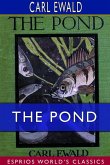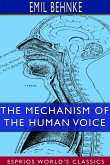Joseph Thomas Cunningham (1859-1935) was a British marine biologist and zoologist known for his experiments on flatfish and his writings on neo-Lamarckism. Cunningham worked at the London Hospital Medical College. He completed his science scholarship at Balliol College, Oxford. Cunningham was a neo-Lamarckian. In his book Hormones and Heredity (1921) he proposed that the mechanism for the inheritance of acquired characteristics were hormones. He termed this "chemical Lamarckism".
Bitte wählen Sie Ihr Anliegen aus.
Rechnungen
Retourenschein anfordern
Bestellstatus
Storno








